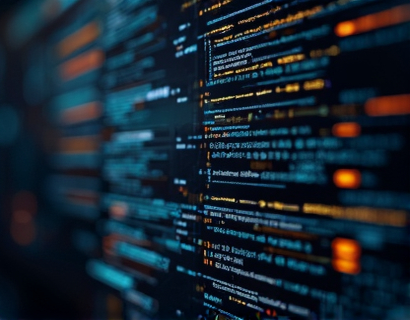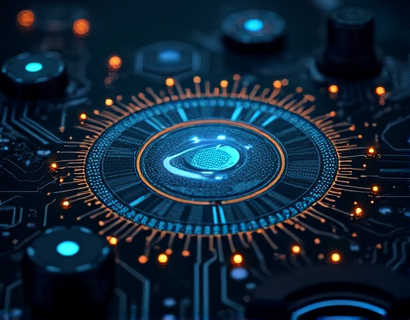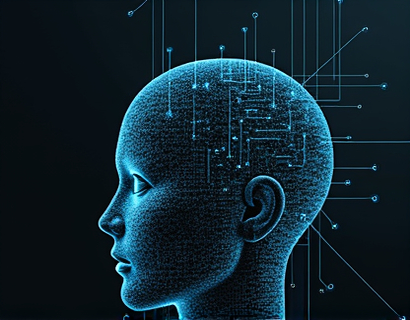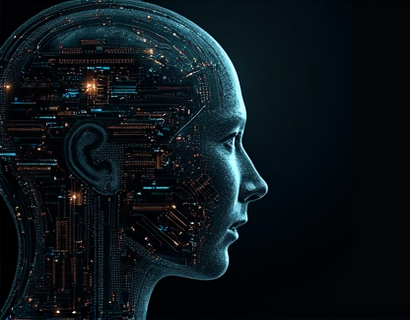AI-Driven Poker Mastery: A Comprehensive Learning Path for All Skill Levels
The world of poker has always been a domain where skill, strategy, and a bit of luck intertwine. For enthusiasts and professionals alike, the pursuit of excellence at the poker table is a continuous journey. In recent years, the integration of artificial intelligence (AI) into poker education has revolutionized the way players learn and improve their game. This article delves into the transformative power of AI-driven poker education, offering a comprehensive learning path tailored to players of all skill levels. From beginner basics to advanced expert strategies, this innovative approach is reshaping the landscape of poker training, enhancing success at the table.
Understanding AI in Poker Education
AI in poker education leverages advanced algorithms and machine learning to analyze vast amounts of data, providing personalized insights and strategies to players. Unlike traditional learning methods, AI can adapt to a player's unique playing style, identifying strengths and weaknesses with precision. This personalized approach ensures that each player receives tailored guidance, accelerating their learning curve and optimizing their gameplay.
The core of AI-driven poker education lies in its ability to simulate real-game scenarios, offering players a safe environment to practice and refine their skills. Through sophisticated AI models, players can encounter a wide range of opponents with varying strategies, enhancing their ability to adapt and think on their feet. This simulated experience is invaluable for developing intuition and decision-making skills, crucial elements in the high-stakes world of poker.
Benefits for Beginners
For newcomers to the game, AI-driven poker education serves as an excellent starting point. Beginners often struggle with the complex rules and strategies of poker, but AI can break down these concepts into manageable, bite-sized lessons. Interactive tutorials and guided sessions help beginners grasp fundamental concepts such as hand rankings, betting strategies, and position value.
One of the most significant advantages of AI-driven learning for beginners is the immediate feedback mechanism. AI can instantly evaluate a player's decisions, providing detailed explanations and suggestions for improvement. This instant feedback loop is crucial for reinforcing learning and building confidence. Additionally, AI can adjust the difficulty level based on the player's progress, ensuring a balanced and challenging learning experience.
Intermediate Players: Refining Strategies
Players at the intermediate stage can greatly benefit from AI-driven poker education by refining their existing strategies and exploring more advanced concepts. AI can analyze a player's historical data to identify patterns and areas for improvement, offering targeted recommendations. For instance, AI might highlight instances where a player could have benefited from a different betting approach or table selection.
AI-driven platforms can also simulate specific tournament structures and opponent types, allowing intermediate players to practice and adapt their strategies in a controlled environment. This exposure to diverse scenarios helps players develop a more nuanced understanding of the game, enhancing their ability to read opponents and make informed decisions.
Advanced Players: Mastering Expert Strategies
For seasoned poker players looking to reach the expert level, AI-driven education provides a pathway to mastering complex strategies and staying ahead of the competition. Advanced AI models can analyze vast datasets to uncover subtle patterns and trends that human players might overlook. These insights can be invaluable for expert players seeking to refine their game further.
One key area where AI excels is in the analysis of opponent behavior. By studying the playing styles of top players and identifying their tendencies, AI can help expert players develop counter-strategies. Additionally, AI can simulate high-stakes scenarios, allowing players to test and perfect their strategies under pressure. This level of simulation and analysis is crucial for maintaining a competitive edge in live tournaments and online cash games.
Comprehensive Learning Resources
The AI-driven poker education platform offers a wide array of resources to support players at every stage of their journey. These resources include:
- Interactive tutorials and video lessons covering the basics to advanced topics
- Real-time hand analysis and feedback on decision-making
- Simulated game sessions with adaptive difficulty levels
- Community forums and discussion boards for peer learning and support
- Progress tracking and personalized learning plans
These resources are designed to be accessible and user-friendly, ensuring that players can learn at their own pace and convenience. The platform's AI engine continuously updates and refines its content based on player feedback and performance data, ensuring that the learning materials remain relevant and effective.
Enhancing Decision-Making Skills
One of the most critical aspects of poker is decision-making. AI-driven education tools can significantly enhance a player's ability to make optimal decisions by providing data-driven insights. For example, AI can analyze a player's hand range and suggest the most profitable betting strategies based on the current table dynamics. This level of analysis helps players develop a more systematic approach to decision-making, reducing the influence of emotions and intuition.
Moreover, AI can simulate millions of hands, allowing players to test different strategies and understand their outcomes. This empirical approach to learning helps players build a robust decision-making framework, crucial for success in high-stakes environments. By repeatedly exposing players to various scenarios, AI-driven tools help solidify good habits and eliminate bad ones, leading to more consistent and profitable gameplay.
Building Psychological Resilience
Poker is not just a game of skill but also of mental fortitude. The ability to stay calm under pressure and maintain focus over long sessions is a key differentiator between good players and great ones. AI-driven poker education can play a significant role in building psychological resilience.
Through simulated high-pressure scenarios, AI can help players practice and improve their mental toughness. For instance, AI can create situations where a player must make critical decisions with limited information or under time constraints. By repeatedly facing these challenges, players can develop better stress management techniques and enhance their ability to stay composed during actual games.
Additionally, AI can provide insights into a player's emotional state based on their playing patterns. This feedback can help players recognize and address mental blocks or biases that may be affecting their performance. By addressing these psychological factors, players can achieve a more balanced and resilient mindset, essential for long-term success in poker.
Community and Support
Learning poker is not a solitary endeavor, and AI-driven platforms recognize the importance of community and support. These platforms often include community features such as forums, chat rooms, and live streaming, where players can connect, share experiences, and learn from each other. This sense of community is invaluable, providing a supportive environment for players to ask questions, seek advice, and celebrate achievements.
Moreover, AI can facilitate peer learning by matching players with similar skill levels or goals for collaborative sessions. These peer-to-peer interactions can lead to valuable insights and strategies that might not be covered in standard tutorials. The combination of AI-driven guidance and community support creates a holistic learning experience, fostering growth and improvement at all levels.
Conclusion
The integration of AI into poker education marks a significant advancement in the way players learn and improve their game. By offering personalized, data-driven insights and simulations, AI-driven platforms cater to the diverse needs of poker enthusiasts, from beginners to experts. This innovative approach not only enhances individual skills but also fosters a supportive community, making the journey to poker mastery more accessible and enjoyable. As AI technology continues to evolve, the potential for even more sophisticated and effective poker education is vast, ensuring that players at all levels can continue to grow and succeed at the table.










































